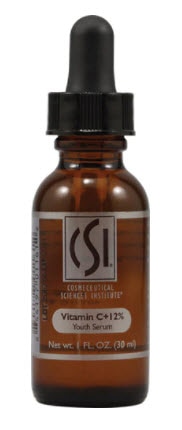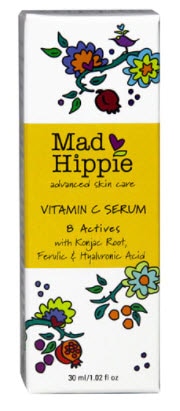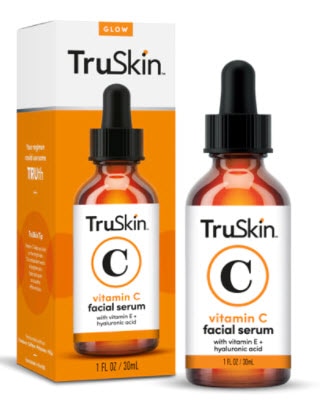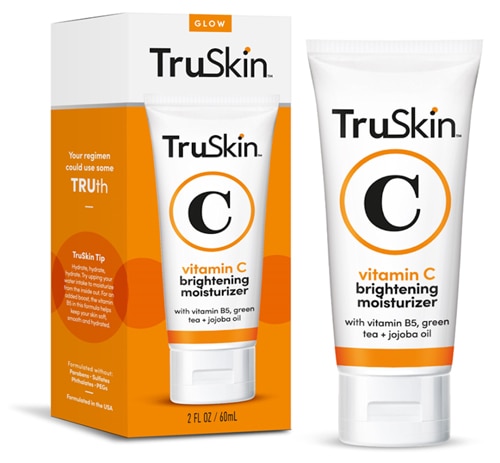It would be nice if there were a fountain of youth to reverse the effects of aging on our bodies, skin and mind. But, while diet and exercise can help some, sadly, there’s no magic elixir that can reduce wrinkles, age spots and saggy skin. Or is there?
 Vitamin C serum
Vitamin C serum is not a miracle potion, but its benefits, if used regularly, can come close. Many people think of vitamin C, found in citrus fruits and spinach, as the go-to vitamin to protect against cold and flu. But, in a topical serum form applied directly on your skin, this vitamin can help boost collagen production, reduce fine lines and wrinkles, and lighten age spots.
“Almost anyone can benefit from using vitamin C serum,” says Aly Barland, MD, a Colorado-based dermatologist at the University of Colorado Health in Denver. But, she cautions, those with sensitive skin may want a lower percentage strength of the serum.
 What is Vitamin C serum?
What is Vitamin C serum?
Vitamin C is found in large quantities in our skin. It’s an antioxidant that helps produce collagen and protect our skin from harmful UV radiation.
While consuming foods high in vitamin C has numerous benefits for our heart, immune system, and brain health, applying it to your skin in topical form is the most efficient way to reap its anti-aging skin benefits. Barland says the overall effect of Vitamin C serum is that your skin looks healthier.
Vitamin C serums come in gel, liquid and cream forms. “The form of vitamin C that is most beneficial is L-ascorbic acid,” says Barland. So be sure that the serum you use, whether gel or cream, says that it’s in that form on the container.
What are some vitamin C serum benefits for skin?
The anti-aging benefits of vitamin C serum are plentiful. While it can’t turn back the hands of time, it can help prevent your skin from premature aging and also, possibly, erase a few years. Benefits include:
Firm and smooth skin
As mentioned above, vitamin C serum can help boost collagen production and protect the collagen you already have.
† Collagen is a protein naturally produced in your body that provides structure to your skin, bones, connective tissue and even your teeth.
For your skin, collagen provides elasticity and firmness, which prevents your face and skin from sagging. Unfortunately, collagen declines with age and also from exposure to UV light. Boosting your collagen production can help your skin look younger, firmer and less jowly, and reduce fine lines and wrinkles.
†
 Age spot reduction
Age spot reduction
Vitamin C serum helps diminish and prevent brown spots, also called age spots, and even out skin tone by inhibiting the production of melanin or dark pigment.
† Extra melanin is the result of sun exposure, pregnancy, aging or taking certain medications.
Reduce sun damage
Vitamin C serum should not be used as a substitute for sunblock, but it can help minimize the damage of the sun’s harmful UV rays once they penetrate your skin. In addition, vitamin C serum’s antioxidant properties help fight the free radicals produced by the sun. Combined with
sunscreen, the two products pack a powerful anti-aging punch.
†
Brighten skin
For some, applying vitamin C serum can sting a little or cause slight redness. That’s because of the ascorbic acid. This acidic property provides a natural, mild exfoliate that helps slough off dead skin cells, producing a brighter, smoother-looking complexion.
How to use vitamin C serum
It’s best to use vitamin C serum after you’ve washed and dried your face and before you apply moisturizer and sunblock. Smooth a few drops of liquid or gel or dab some cream over your entire face, as wells as your neck and décolleté. Vitamin C serum should be used year-round.
However, there are some products it should not mix with it. “Ideally, [vitamin C serum] should not be used simultaneously with topical retinoid or benzoyl peroxide,” warns Barland. “These products should be used separately if part of the skincare regimen so as not to inactivate one another.”
Since everyone is subject to aging and sun damage, anyone can benefit from this product. However, as with any topical treatment, it can potentially irritate your skin. Barland says that if it causes
inflammation or a topical reaction with use, talk to your dermatologist. It may not be the best product for you.
What to choose a good vitamin C serum

With its multiple benefits, it’s no surprise that there are a lot of products on the market. It’s often mixed with a combination of antioxidants and other anti-aging powerhouse ingredients. Look for products combined with vitamin E and ferulic acid, which help aid delivery and also keep it stable.
As far as strength, you’ll see bottles containing anywhere from 10% to 20% vitamin C. The higher the concentration, the more potent the product. But experts say more than 20% is no more effective.
It’s important to note that vitamin C is unstable and be rendered ineffective if it’s exposed to too much light and air. That’s why it’s often bottled in a dark container. Store it in a cool, dark place, like your medicine cabinet, and be sure to seal the bottle when through using tightly. The product should be clear or light yellow. If it’s dark yellow or brownish, that means it may have oxidized, and you should toss it.
†These statements have not been approved by the Food and Drug Administration. These products are not intended to diagnose, treat, cure or prevent disease.
 Vitamin C serum is not a miracle potion, but its benefits, if used regularly, can come close. Many people think of vitamin C, found in citrus fruits and spinach, as the go-to vitamin to protect against cold and flu. But, in a topical serum form applied directly on your skin, this vitamin can help boost collagen production, reduce fine lines and wrinkles, and lighten age spots.
“Almost anyone can benefit from using vitamin C serum,” says Aly Barland, MD, a Colorado-based dermatologist at the University of Colorado Health in Denver. But, she cautions, those with sensitive skin may want a lower percentage strength of the serum.
Vitamin C serum is not a miracle potion, but its benefits, if used regularly, can come close. Many people think of vitamin C, found in citrus fruits and spinach, as the go-to vitamin to protect against cold and flu. But, in a topical serum form applied directly on your skin, this vitamin can help boost collagen production, reduce fine lines and wrinkles, and lighten age spots.
“Almost anyone can benefit from using vitamin C serum,” says Aly Barland, MD, a Colorado-based dermatologist at the University of Colorado Health in Denver. But, she cautions, those with sensitive skin may want a lower percentage strength of the serum.
 What is Vitamin C serum?
What is Vitamin C serum? Age spot reduction
Age spot reduction With its multiple benefits, it’s no surprise that there are a lot of products on the market. It’s often mixed with a combination of antioxidants and other anti-aging powerhouse ingredients. Look for products combined with vitamin E and ferulic acid, which help aid delivery and also keep it stable.
As far as strength, you’ll see bottles containing anywhere from 10% to 20% vitamin C. The higher the concentration, the more potent the product. But experts say more than 20% is no more effective.
It’s important to note that vitamin C is unstable and be rendered ineffective if it’s exposed to too much light and air. That’s why it’s often bottled in a dark container. Store it in a cool, dark place, like your medicine cabinet, and be sure to seal the bottle when through using tightly. The product should be clear or light yellow. If it’s dark yellow or brownish, that means it may have oxidized, and you should toss it.
†These statements have not been approved by the Food and Drug Administration. These products are not intended to diagnose, treat, cure or prevent disease.
With its multiple benefits, it’s no surprise that there are a lot of products on the market. It’s often mixed with a combination of antioxidants and other anti-aging powerhouse ingredients. Look for products combined with vitamin E and ferulic acid, which help aid delivery and also keep it stable.
As far as strength, you’ll see bottles containing anywhere from 10% to 20% vitamin C. The higher the concentration, the more potent the product. But experts say more than 20% is no more effective.
It’s important to note that vitamin C is unstable and be rendered ineffective if it’s exposed to too much light and air. That’s why it’s often bottled in a dark container. Store it in a cool, dark place, like your medicine cabinet, and be sure to seal the bottle when through using tightly. The product should be clear or light yellow. If it’s dark yellow or brownish, that means it may have oxidized, and you should toss it.
†These statements have not been approved by the Food and Drug Administration. These products are not intended to diagnose, treat, cure or prevent disease.



